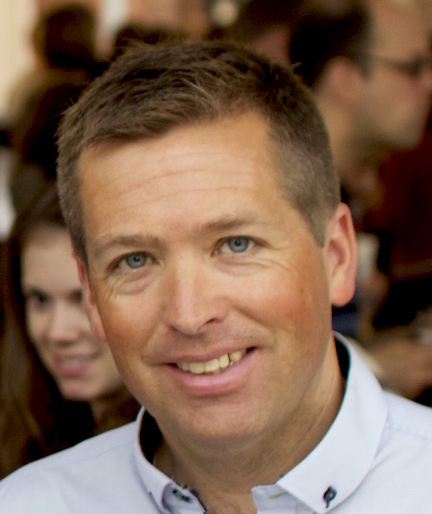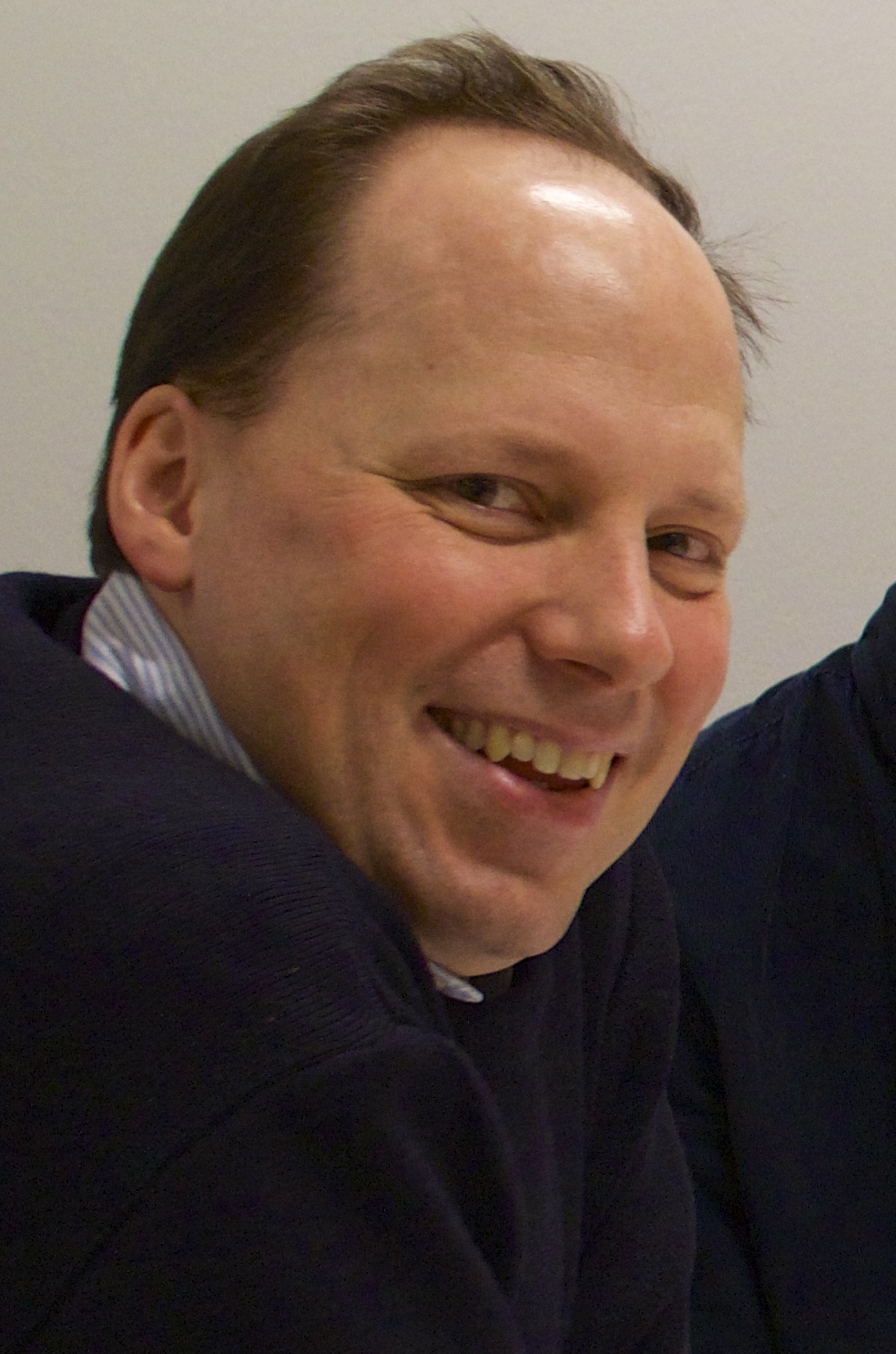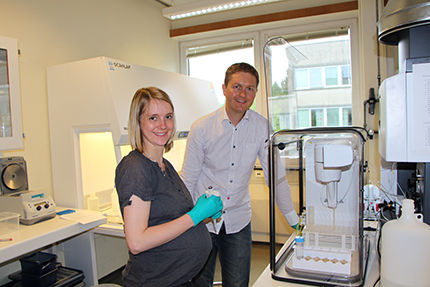1. EARTHLAB – Earth Surface Sediment Laboratory
2. FARLAB – Facility for advanced isotopic research and monitoring of weather, climate, and biogeochemical cycling
3. Sclerochronology Lab
4. TElab – Uni Research Trace Element Lab
5. Labs connected to ICOS:
- The Chemical Oceanography Laboratory
1. EARTHLAB - Earth Surface Sediment Laboratory
The Earth Surface Sediment Laboratory (EARTHLAB) is a national infrastructure project funded by NFR Infrastructure Program 2014, hosted at the Dept. of Earth Science UiB (GEO). The main purpose of EARTHLAB is to serve the Earth Science environment in Bergen, including palaeoclimate research at the Bjeknes Centre, with state-of-the-art infrastructure for sediment analyses.

EARTHLAB-Sediments provide facilities for preparation and investigation of sediment samples and includes a wide rage particle size and characterization measurements as well as core scanners; CT-scanner (CT-ALPHA-CORE ProCon X-ray), hyperspectral-scanner (SPECIM SCS), Multi sensor core logger (GEOTEK), XRF-scanner (ITRAX), Grain size and shape analyses (Mastersizer 3000, Coulter Counter, SediGraph, Morphology G3)
EARTHLAB-Chronology is equipped for extraction and preparation of tephra samples for further analyses (e.g. geochemical fingerprinting) from various sedimentary archives. The lab includes A X-ray Diffractiometer (Bruker D8 Advance ECO), and possibilities for Lead 210 (210Pb) dating.
EARTHLAB-magnetism is a continuation of the infrastructure for studies of environmental magnetism from the Paleomagnetic Laboratory at GEO. It includes a range of instruments for core, specimen and field measurements of magnetic susceptibility (Bartington MS2 point sensor, AGICO MFK-1 FA, BRNO KLY2 kappabridge) as well as rock magnetometers.
EARTHLAB-Field equipment include a wide range of light and semi-light weight sediment coring equipment, terrestrial LIDARscanner (Riegl), Ground penetrating radar systems (MALÅ and Blue systems), light weight seismic equipment (Edgetech Chirp).
People involved at UiB: Jostein Bakke (Project leader), Haflidi Haflidason (Co-leader), Eivind Støren (laboratory manager), Torgeir Opeland Røthe (PhD-student).
Funding: NFR (Norwegian Research Council)
Visiting address: Realfagbygget, Allégaten 41
Web-page: http://www.uib.no/en/earthlab
2. FARLAB - Facility for advanced isotopic research and monitoring of weather, climate, and biogeochemical cycling
The lab allows for new and advanced research on stable isotopes that will provide more and new knowledge about weather, climate and the biogeochemical cycle. FARLAB performs isotope analyses of close to all materials – rainwater, seawater, water vapour, and in carbonate in fossil shells, stalactites and stalagmites, deep-sea vents and in organic molecules and gases from hydrothermal systems.

The facilities for isotope analyses in FARLAB give researchers access to several new methods that have not been available in Norway up until now. The lab will play a key role in a growing international network around the monitoring stations for stable isotopes in the North Atlantic and Arctic region. In addition, the new equipment can easily be transported, making it possible to bring it on the ship or aircraft for field measurements, and these direct measurements will thus adjust the collection and provide the best possible data coverage.
People involved at UiB: Professor Ulysses Ninnemann (Project Coordinator), Nele Meckler and Harald Sodemann
Partners: Department of Earth Science and the Bjerknes Centre
Funding: NFR (Norwegian Research Council): 16,6mill NOK
3. Sclerochronology Lab
The Uni Research Sclerochronology Laboratory is equipped to prepare, sample and analyse accretionary carbonates, in particular different biological archives with annual growth increment. The main activities are sclerochronological studies of bivalves.
The laboratory is equipped with Buhler low- and high speeds saws, and grinder-polisher. There are facilities stereo and compound light microscopes and advanced software for image analyses of growth increments. The laboratory is also equipped instruments for micron-scale sampling, both automated and manual, of growth increments.
Daily Operation: Carin Andersson Dahl. Visiting address: Nygårdsgaten 112.
4. TElab - Uni Research Trace Element Lab
Uni Research Trace Element Lab is a state of the art lab analysing trace element concentrations from marine calcium carbonates measuring elemental ratios like Magnesium/Calcium. The purpose is to give an accurate estimate of reconstructed ocean temperatures. The laboratory can provide trace element analyses of small concentrations in other calcium carbonates as well.

The laboratory houses preparation facilities and a new Agilent 720 ICP-OES with a SPS 3 Autosampler and SVS 2 productivity package. Researchers and technical staff at BCCR are able to advise and supervise researchers and students in the process of analysing foraminiferal calcite (zooplankton) for paleoclimatic reconstructions. The lab has capacity to undertake commercial work and enquiries for analyses are welcome.
Daily operation: Jørund Strømsøe and Amandine Tisserand, Scientific responsible: Trond. M. Dokken
Partners: NORCE and the Bjerknes Centre
Funding: Centre for Climate Dynamics (SKD)
Visiting address: Allégaten 55 (4th floor)
website: http://uni.no/en/uni-climate/uni-research-trace-element-lab/
5. Labs connected to ICOS:
The Chemical Oceanography Laboratory
The chemical oceanography laboratory supports the research group with activities related to quantifying air-sea carbon flux and water-mass movement and dynamics. The lab use specialized instruments to measure seawater for the partial pressure of carbon dioxide, total inorganic carbon, alkalinity, dissolved oxygen, salinity, and the tracers SF6 and CFC12. The instruments are periodically taken to sea during research cruises in order to perform round-the-clock onboard analysis.
The laboratory is home to the Ocean Thematic Center (OTC), a subset of the Integrated Carbon Observation System (ICOS), a strategic research infrastructure. This European network is responsible for oceanic observations used to understand the global carbon cycle and climate-relevant gas emissions. The lab is responsible for setting best-practice routines, the calibration of instruments, and quality labelling of marine ICOS stations, which together ensure high quality surface and deep-ocean carbon data.
Daily Operation: Tor de Lange and Kristin Jackson
Visiting address: Allégaten 70
